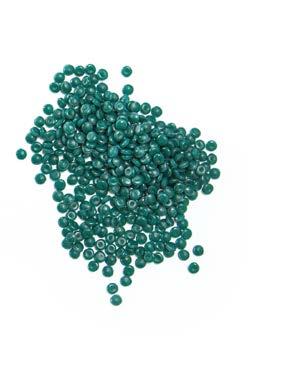
3 minute read
EREMA Group stays on course for growth
Best Practice Post Consumer Recycling
BENEFITTING SOCIETY WITH PLASTICS RECYCLING
> KENYA: MR. GREEN AFRICA SUCCESSFUL WITH SUSTAINABILITY <
Massive international interest is being attracted by a business idea in Nairobi, Kenya, which is unique in the plastics industry. Mr. Green Africa's two company founders, Keiran Smith and Karim Debabe, were looking for a solution to prevent the growing mountains of plastic waste in and around Nairobi and to integrate the tens of thousands of informal waste collectors into a plastics processing value chain. Founded in 2014, the company succeeded in establishing a collection and sorting system for post consumer plastics from industrial and household waste in the greater Nairobi area. Today the company has a permanent staff of 110 as well as 2,500 waste collectors among its suppliers. The beginning of 2020 saw an increase in their value adding process. The company now processes its own washed chips (previously they sold them) to produce high-quality recycled material using an INTAREMA® 1108 TVEplus® RegrindPro® made by EREMA.
The two founders of Mr. Green Africa, Keiran Smith and Karim Debabe, got to know each other through a group of friends during their studies in Zurich. In the course of many discussions about the contradictory relationship between increased plastic waste and growing environmental awareness, they hit upon the idea of becoming active in the plastics industry themselves. Following careful consideration, they chose Nairobi, Kenya as the location for their headquarters. Here the environmental pollution caused by plastic waste cannot be ignored. Tonnes of waste end up either on the streets of Nairobi or in the illegal dumps on the outskirts of the city. Due to the increasing population and urbanisation, the volume of waste is continuing to rise sharply. “This unmistakable development, the inviting business conditions for foreign investors, as well as our local contacts, were all reasons that encouraged us to establish Mr. Green in Kenya,” explains CEO Keiran Smith.

THE SHADY SIDE OF THE WASTE DISPOSAL BUSINESS
The lack of municipal collection and sorting systems in Kenya is leading to the development of a steadily growing parallel economy in waste collection. This is left unchecked by the authorities, resulting in non-transparent structures and low pay for the hard-working waste collectors. Only very few profit from waste disposal, which is a flourishing business. “During our visits to Nairobi, we noticed that plastic waste is increasingly becoming part of the normal cityscape. In proportion to the increase in waste, people were seen searching for particular types of plastics in the mountains of garbage that they could later sell on to dealers. At a ridiculously low price considering the hard and dangerous work. Because without suitable boots, protective clothing and above all gloves, broken glass, syringes and sharp metal tins can quickly become life-threatening,” reports Karim Debabe. “On the one hand, the waste collectors' incomes are too low to live on, or to feed their families. On the other hand, as a citizen without a fixed income, without an employment contract, and without health insurance, you are virtually non-existent for the state. That's why we often talk about the waste collectors as invisible heroes and why we wanted to finally give them the appreciation they deserve,” says Keiran Smith, explaining the motivation behind the business idea.
SUCCESS WITH A MEANING
Mr. Green Africa was founded in 2014 and opened its headquarters in Nairobi. “Our business idea: Collect, sort, recycle and resell plastics while making a valuable social and environmental contribution to the local population.” says Keiran Smith. “We built our business model based on this vision, with our main focus on upgrading the working conditions of the waste collectors.” The young entrepreneurs went ahead and set up a collection and sorting system for post consumer plastics from industrial and household waste. The PET, HDPE and PP material collected is washed at the Nairobi plant, processed to form washed chips, and then sold to local and international customers. For Mr. Green Africa, being able to achieve social sustainability with their business model meant not only a higher and more consistent income for waste collection, it is also about helping workers to regain their dignity. By working together with Mr. Green Africa, waste collectors benefit from a variety of supplier loyalty programs and services such as health care and access to microcredits. Other nonmonetary benefits include providing protective clothing such as gloves and boots as well as tools, and in some cases mobile phones.
» Our business idea:
Keiran Smith, CEO Mr. Green Africa










